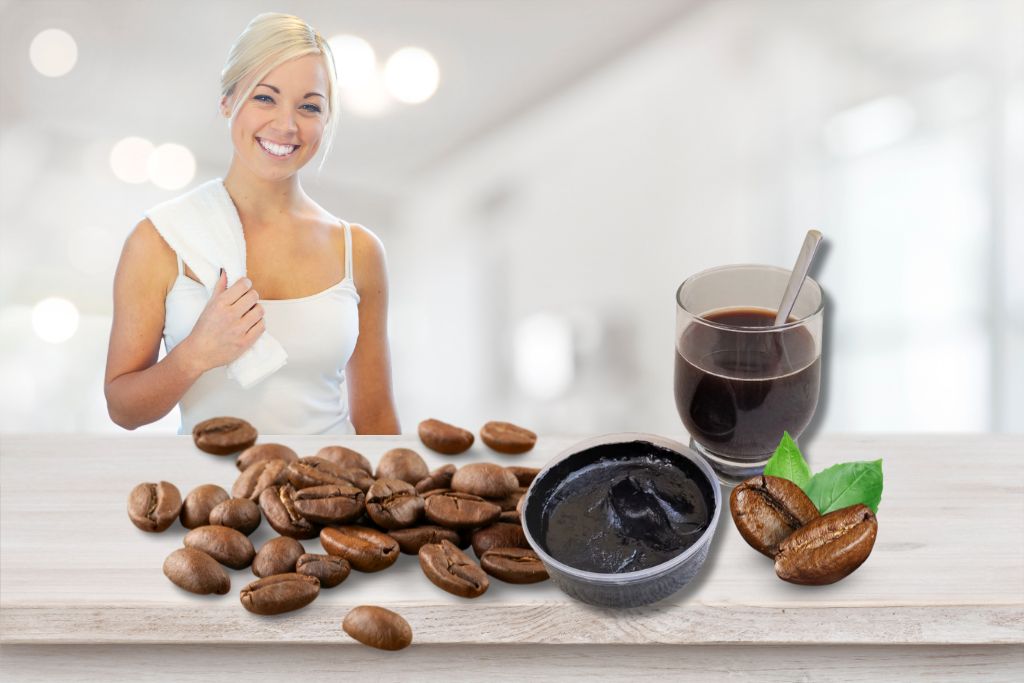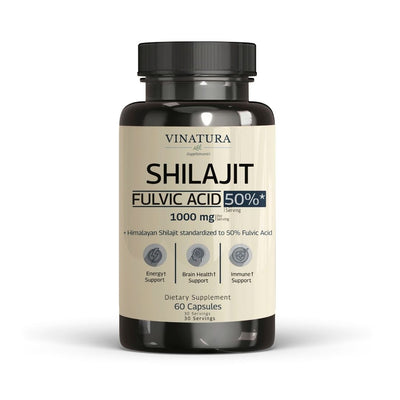
Can Shilajit Be Taken With Coffee? 3 Ways To Take Shilajit
Do you want to maximize the potential benefits of Shilajit? Many people find that taking it with coffee can help boost its effects. However, is this combination right for everyone? In this blog post, we are going to find out the answer for the question "Can Shilajit be taken with coffee?" and provide three alternative ways of taking it. Read on as we uncover the science behind combining these two natural remedies!
Before exploring further, please read the disclaimer located at the end of this webpage.
Can Shilajit be Taken With Coffee?
The short answer is yes, Shilajit can be taken with coffee. Many people have reported experiencing enhanced cognitive benefits when combining Shilajit and coffee.
Coffee contains caffeine, which acts as a stimulant to help increase alertness and focus.
On the other hand, Shilajit is known for its adaptogenic properties that support mental clarity and energy levels. This combination allows for a synergistic effect that can improve your overall cognitive performance.
Learn more: Can You Take Shilajit With Multivitamins Together?
Potential Advantages of Shilajit And Coffee Together
Increased Energy Levels
One of the most significant benefits of taking Shilajit and coffee together is increased energy levels. As mentioned earlier, caffeine in coffee acts as a stimulant that can provide an instant boost of energy.
When combined with the adaptogenic properties of Shilajit, this effect can be further enhanced, allowing you to feel more energized and focused throughout the day.
Improved Mental Performance
Both Shilajit and coffee have been shown to improve cognitive function, making this combination an excellent choice for anyone looking to enhance their mental performance.
Studies have found that caffeine can improve alertness, attention, and memory recall, while Shilajit has been linked to reduced stress levels.
Boosted Antioxidant Effects
Another significant advantage of combining Shilajit and coffee is the increased antioxidant effects. Shilajit is a rich source of antioxidants, which help protect your body from harmful free radicals that can cause cell damage.
Coffee also contains high levels of antioxidants. Combining coffee and Shilajit can provide even more potent protection against oxidative stress.

In today’s fast-paced world, many people rely on supplements for their convenience and effectiveness. Flavio, an Amazon user who recently tried the product, shared that he had been searching for something to enhance his daily energy and focus. With long working hours and frequent mental fatigue affecting his productivity, he needed a sustainable solution. After just a few days of consistent use, he noticed a remarkable increase in energy—without the usual "spike and crash" associated with common stimulants.*
How to Drink Shilajit with Coffee Properly?
Now that we've established the potential benefits of combining Shilajit and coffee, the next question is, can you mix them and the way to drink Shilajit with coffee properly? Here are some notes for you:
When mixing with coffee, it's essential to ensure that you are using high-quality Shilajit products. Low-quality Shilajit may contain impurities or heavy metals that can be harmful to your health. Similarly, cheap coffee may not provide the desired effects and could even contain additives that can counteract the benefits of Shilajit.
As with any supplement, it's crucial to follow the recommended dosage when taking Shilajit and coffee. Start with a small amount of Shilajit, such as a pea-sized portion, and gradually increase the dosage as needed. It's also essential to monitor your caffeine intake and not exceed the recommended daily limit.
While mixing Shilajit with coffee can provide numerous benefits, it's essential to listen to your body and adjust accordingly. Some people may find that they are more sensitive to caffeine or may not react well to the combination. In these cases, it's best to stick with alternative methods of taking Shilajit.
Read more: How To Take Shilajit? What Is The Best Way To Take Shilajit?
Is There Any Cons Or Precaution When Taking Shilajit With Coffee?
First and foremost, it’s essential to understand that everyone's body is different. While some people may benefit from combining Shilajit with coffee, others may experience adverse effects.
It’s important to listen to your body and adjust accordingly. Additionally, if you have any pre-existing health conditions or take medication, it’s always best to consult with your healthcare provider before adding Shilajit and caffeine into your routine.
Besides, it's worth noting that caffeine may also act as a diuretic, causing increased fluid loss in the body. Shilajit offers hydrating properties and helps replenish electrolytes lost through sweating or dehydration.
Therefore, when taking Shilajit with coffee, it is important to stay hydrated and drink plenty of water throughout the day.
Learn more: 10 Foods You Should Avoid Consuming With Shilajit
3 Other Effective Ways to Take Shilajit
While Shilajit can be mixed with coffee for additional benefits, there are also other effective and tasty ways of taking it.
Take Shilajit with Sweet Juice
For those who prefer a more flavorful option, adding Shilajit to smoothies or juices is an excellent choice. This method allows for easy consumption while providing additional nutrients from the other ingredients in the drink.

Take Shilajit with Oat Milk
Another option for taking Shilajit is by mixing it with oat milk. Not only does this provide a tasty and creamy drink, but it also offers additional health benefits from the oat milk itself. Oat milk is a good source of fiber, protein, and various vitamins and minerals, making it a nutritious choice to pair with Shilajit.

Take Shilajit As Tea with Lemon And Honey
Lastly, one of the most traditional ways to take Shilajit is by brewing it as a tea with lemon and honey. This method not only provides a warm and soothing beverage but also combines the benefits of Shilajit with those of lemon and honey. Lemons are rich in vitamin C and have antibacterial properties, while honey is known for its anti-inflammatory and antioxidant effects.
You also may like: Can You Take Shilajit With Honey?
Frequently Asked Questions
What is the Best Time to Take Shilajit?
The best time to take Shilajit is in the morning with breakfast or as directed by your healthcare provider. This allows for maximum absorption and utilization of its nutrients throughout the day.
Can I Take Shilajit with Hot Water?
You can take shilajit with hot water. Some people prefer to mix it with hot water as it helps dissolve the shilajit more easily and may also enhance its effects. Just make sure to let the water cool down a bit before drinking to avoid burning your mouth or throat.
What Is The Best Form Of Shilajit To Take?
The best form of Shilajit to take is a high-quality, purified resin that has been processed and tested for impurities. This ensures that you are getting the purest and most beneficial form of Shilajit without any harmful additives or heavy metals.
Can You Drink Alcohol While Taking Shilajit?
Before combining any supplement or medication with alcohol, it's important to consult your healthcare provider. While there are no known interactions between Shilajit and alcohol, excessive consumption of either can have adverse effects on the body.
Conclusion
In conclusion, the answer for the question “Can Shilajit be taken with coffee?” is yes. Mixing Shilajit with coffee is a great way to enjoy the benefits of both ingredients. However, it's essential to use high-quality products, stick to recommended dosages, and listen to your body. If you're unsure about combining the two, there are plenty of alternative ways to take Shilajit, such as mixing it with milk or honey, adding it to smoothies or juices, or brewing it as a tea with lemon and honey. Whichever method you choose, incorporating Shilajit into your routine can provide numerous health benefits.
Testimonial Disclaimer
*The testimonials presented on this website are provided by individuals based on their personal experiences with our products. These testimonials represent individual opinions and experiences, which may not be typical or applicable to all users of our products. Results may vary depending on a variety of factors, including individual health, lifestyle, and adherence to product usage instructions.Author

Product Disclaimer
Including an ingredient or study does not evaluate, endorse, or recommend any Vinatura product or any third-party product. Some ingredients discussed may not be used in any Vinatura product.
The content of the articles has not been evaluated by the Food and Drug Administration (FDA) and is not intended to promote or endorse any specific product. Any products sold on this website are not intended to diagnose, treat, cure, or prevent any disease.
Opinions and Endorsements
Any claims, statements, or opinions expressed in the articles are those of the author(s) and do not necessarily reflect the views or opinions of the manufacturers of the dietary supplement products. The products sold on this website are separate from the content of the articles and are not directly endorsed or associated with the information presented here.
Liability Disclaimer
The author(s) of the articles, website, and manufacturers of the dietary supplement products do not assume any liability for any potential consequences arising from the use of the information provided in the articles. Ingredient effects, dosages, and safety vary by individual, formulation, and context; some ingredients interact with medications or may be unsuitable during pregnancy or lactation. It is recommended that individuals consult with a qualified healthcare professional before making any dietary or lifestyle changes, including the use of dietary supplements.
Product Usage
Please refer to the product labels and packaging for specific usage instructions and guidelines for the dietary supplement products sold on this website.
Customer Support
For any concerns or questions regarding the dietary supplement products, please contact our customer support team, who will be more than happy to assist you.





Leave a Comment
Be the first to comment.
What do you think?